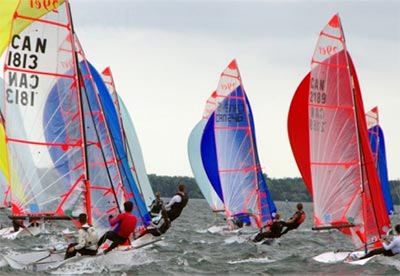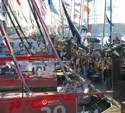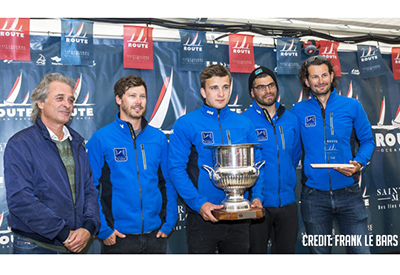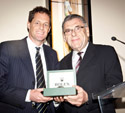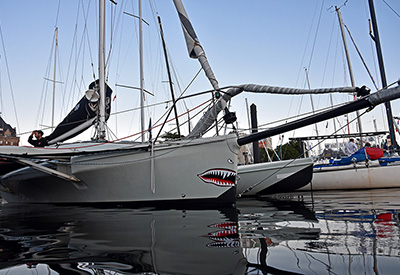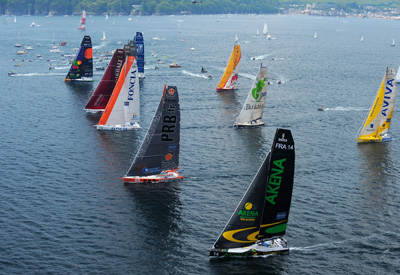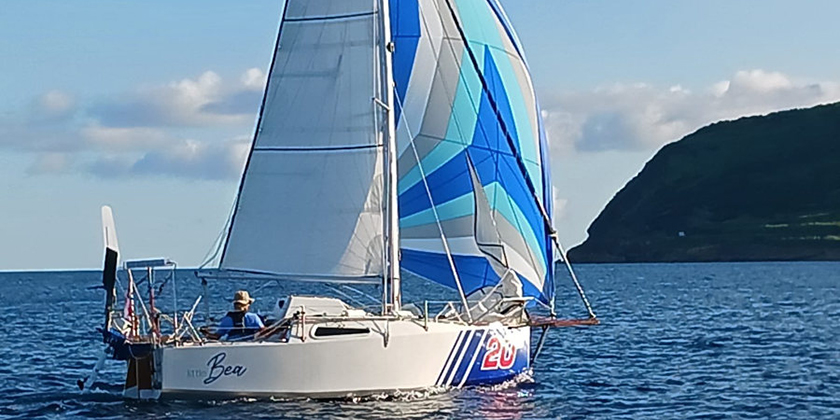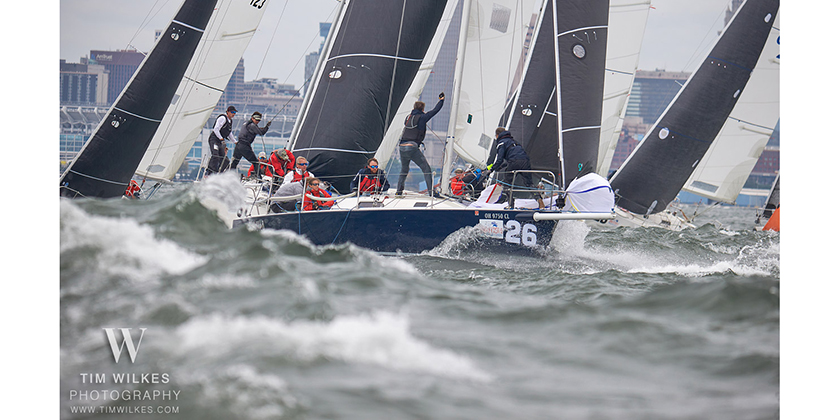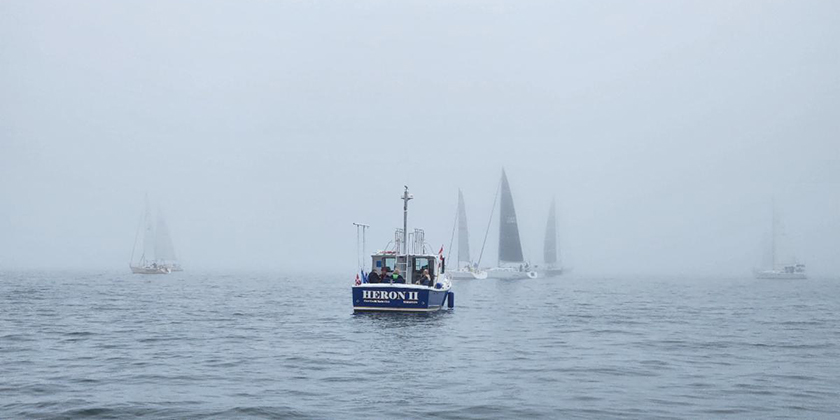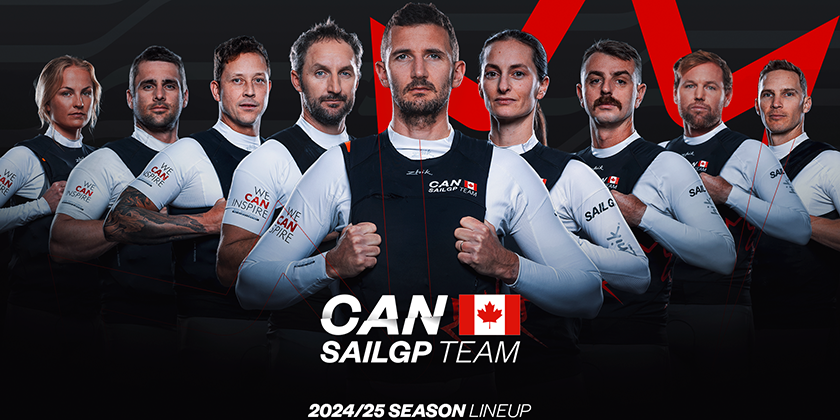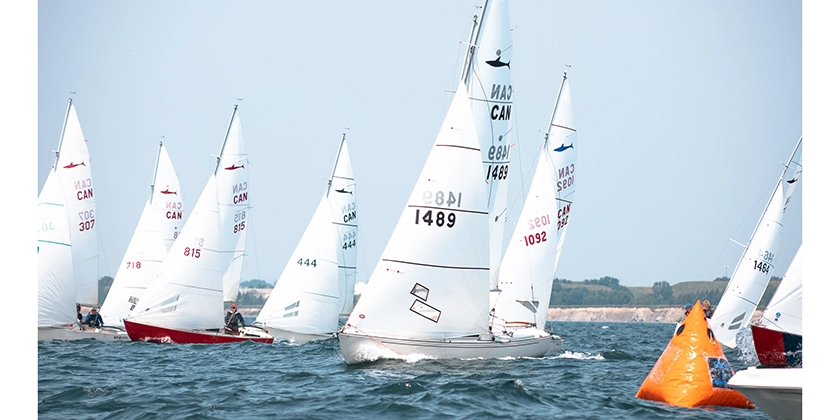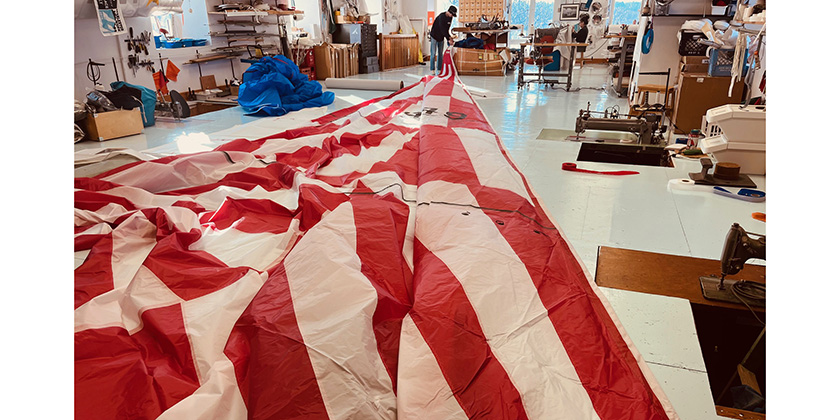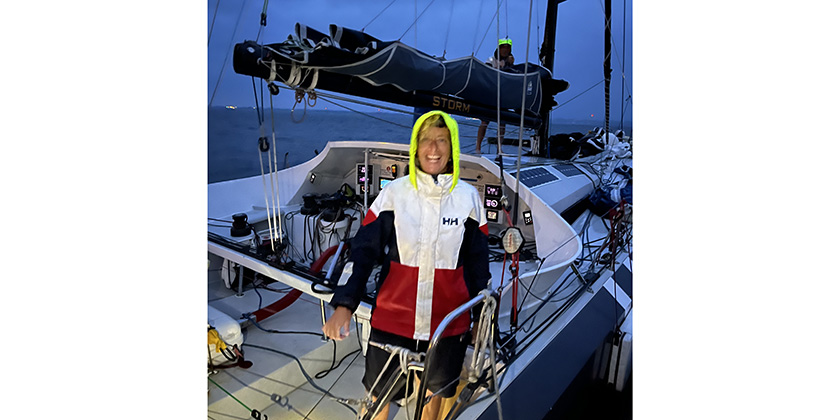Not Your Normal Regatta
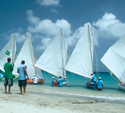
 Our boat heels and bow waves crash over her. She rides the waves like a rollercoaster gone berserk. Spray like shards of glass glitters in the tropical sunlight.
Our boat heels and bow waves crash over her. She rides the waves like a rollercoaster gone berserk. Spray like shards of glass glitters in the tropical sunlight.
"High side," yells the skipper, a seaman from Petit Martinique with the evocative name of Emmanuel Bethel.
We scramble to starboard while "Savvy" overtakes another boat. It's stocky instead of graceful, solid instead of sleek. But it, too, slices the sea.
It's a race, even if no ordinary one. We're plowing through sapphire seas embracing the emerald Grenadines. And we're sipping on sweating Carib beers as we round Carriacou close-hauled.
Not exactly Fastnet material, this crew of ours, even if our skipper and two fishermen, from Petit Martinique, compete with all their hearts and souls.
Danny Donelan, who works at Port Louis Marina in Grenada, answers his celland arranges dinner reservations. Behind him an outcropping of rock rears up like some surreal castle two hundred feet from the sea. Way behind him, blue and shrouded in mist, recline the mountains of Grenada.
His buddy, Graham Fletcher, goes below on a beer run. "I'm here for a good time," he says. Emmanuel yells down for him to move one of the sand bags that act as ballast for this boat. No fin keel here. "And bring up another beer."
That's when, as we slash the waters fifty yards off a thundering reef, it hits me. The Carriacou Regatta, from July 26 to August 3, is one of the best parties in the Caribbean – and a look at how things used to be in these seafaring islands.
But it is not your normal regatta.
And this is no normal boat. Her name is "Savvy". "The keel is five thousand pounds," says Jeff Stevens, who built her. "It's made from greenheart, up from Suriname. The mast is hand-planed. Traditional sloop." But it's no match for "Margeto 2", a perennial winner in the Carriacou Regatta. Emmanuel snorts in disgust and glares at the sails. "Too heavy. Tourist sails."
Seven boats start this race. One boat fouls their foresail at the start and drops out. We finish sixth.
"Another beer?" says Graham.
No agony of defeat here. Let me reiterate: this is not your normal regatta. For one thing the Carriacou Regatta is mostly a local dish. Full of flavour and spicy as hell. On the upside, they welcome visitors whole-heartedly.
The next day, instead of racing, we recline at tables in the shade of a beachside eatery called "Snagg's" where the Caribs keep coming and the beans and rice with chicken are served to a whole congregation of ex-pats who watch their kids participate in Opti races – a sort of microcosm of the workboat races up the beach.
The races cover four days. Twelve classes of boats participate – mostly traditional working boats. When the horn blows, each crew powers its boat through the surf. They throw themselves into the cockpit and the winds catch their sails before the last man hoists himself up the gunwales. The boats are impossibly close. The boom of one boat brushes the sail of another. No one seems to care. Two hulls crash, one careening to port, the other heeling so much that water floods the cockpit until two guys hike themselves over the high side.
The crowd goes nuts – then it's back to some Soca just outside a ramshackle little bar, ground zero, called D Jupa. Cheap rum, more cold Caribs and the trophies. For bragging rights are huge.
Might not be the Heineken, but for these guys – crews on long liners and fishermen and boat builders from Trinidad to Union Island – it's the big-time.
It started in1965 when John Linton Riggs, a sailor from Jamaica who'd come to Carriacou to retire, decided the work boats and their crews needed a bit of a challenge.
"So many people earned their keep on these kinds of boats," says past chair Dexter Lendore. "Fishing and trade between islands. That's why this is an important celebration. This is real life – and it keeps alive an important tradition of seamanship and boatbuilding."
An important tradition, but just as important is the party atmosphere.
Ten-foot speak columns belt out music as locals fill streets festooned with overhead flags in the national colours of red and green and yellow. It is just as colourful as the boats onshore – lime green and fluorescent orange, aquamarine and teal, clustered on the sand like birds of paradise. Their names are equally vivid. "D Shark" lazes next to "Out-Rage", down the beach from "Ghost" and "Swift."
"But it's about a lot more than just these races," says Lendore, indicating the beached fleet. "Family reunions are big – this is when people who've moved away come home to visit."
Party's no slouch, either.
You consider stretching out on your berth, but you're torn.
Tomorrow is the greased pole contest. "Big tree trunk," says Lendore. "Stuck on an angle out over the water. They don't make it – splash!" he says, grinning. "You missed the donkey race but you can still catch the half-marathon. Or the bike race."
But tomorrow is another day. We join the fete.
Danny and Graham appear from a cluster of pretty girls bopping to the Soca. Danny raises his sweating Carib in a toast. "Best party around," he yells over the music, a pounding bass groove you feel in the pit of your stomach.
Can't remember if I mentioned this already, but this is not your normal regatta.

